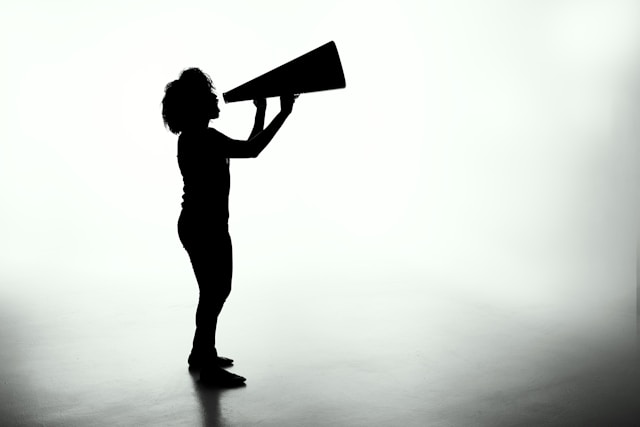South African Pass Laws and the Women’s March in 1956
The pass laws in South Africa already existed for decades, and in the 1950’s, during Apartheid, they were extended and were also applicable for women. As it was necessary to have a permit to enter certain areas, it also meant that women were not allowed to visit their husbands, sons or friends who were working in the areas that were determined for whites only and which could only be entered when carrying a pass with a permit. [1]
On 9th of August 1956, about 20.000 women of every population group marched upon to the Union Building in Pretoria to protest the extension of the pass laws. With themselves they brought a petition[2] against these laws. After the arrival at the Union Building these women stood silently for 30 minutes – brave and powerful.[3]
Commemorating this event, South Africa has declared 9th of August Women’s Day and August in entirety Women’s Month to celebrate women and their achievements for the country, in particular during freedom struggle.[4]
Women’s situation in South Africa
Indeed, following the summary of sahistory.org regarding women’s development over the decades[5], women’s contribution during South Africa’s freedom struggle is undeniable and impressive.
Still, South Africa has a long way to go in terms of gender equality.
According to sec. 9 (3) of the South African Constitution women are granted equal rights.[6] This is also reflected in laws, for example the Employment Equity Act.[7]
However, women in South Africa still struggle with inequality, and observing women’s situation in the country, the laws seem to have made broken promises or simply are toothless tigers.
Women and girls are still disadvantaged and not sufficiently protected in South Africa.
The Department of Statistics South Africa compiled data which reveal that women are over-proportionally disadvantaged when it comes to unemployment, poverty as well as education and training. 43% of children grow up with a mother as a single parent, while only 3,3% of fathers are single parenting. When it comes to violence it is the poor and lesser educated women who experience the most violence.[8]
According to an Afrobarometer survey, gender-based violence is one of the most pressing topics in South Africa, and is significant, that nearly half of South African’s think that gender-based violence is very or somewhat common.[9]
School dropouts are not uncommon due to child pregnancies[10], and a female (!) provincial Health Minister who in 2022 (not in 1922) felt it necessary to tell schoolgirls to “open their books and close their legs”[11] surely is more part of the problem than a proof of a finalised transformation into a gender-equal society
Why Women’s Month is important for South Africa
One could ask if it is somehow illogical to celebrate Women’s Month in a country in which women are still disadvantaged at such a level. Again, from a purely legal point of view, women are equal in South Africa. Factually they are not. It is not sufficient to build the legal framework. It is necessary to fight the root causes of this situation and from my perspective this means creating awareness of women’s situation and fighting overcome understanding of roles in a society. It must be implemented in the civil society. A rethinking and reforming of society is necessary for women to win their gender struggle. This also means education. Not only education for and of women, moreover education of boys and men.
The best way for this is to start with awareness. If everything stays as it is and is “normal”, nothing will change.
This is the reason why Women’s Months is important, although this could only be a starting point and needs to have a clear society-developing concept behind. People need to understand that uniting in diversity strengthens a society. Thus, it is necessary to celebrate the achievements of the women in the past and to empower the women of the future.
It is necessary, actually not only in South Africa, to show that society has the young women’s back. That they are not alone, that they are supported, and they are going to have a brighter future.
[1] Encyclopedia Britannica, ‘Pass law | Definition, South Africa, & Apartheid’ (4 August 2024) <https://www.britannica.com/topic/pass-law> accessed 4 August 2024.
[2] unknown, ‘The Demand of the Women of South Africa for the Withdrawal of Passes for Women and the Repeal of the Pass Laws | African National Congress’ (4 August 2024) <https://web.archive.org/web/20170509015920/http://www.anc.org.za/content/demand-women-south-africa-withdrawal-passes-women-and-repeal-pass-laws> accessed 4 August 2024.
[3] International Women’s Day, ‘National Women’s Day in South Africa is a powerful day for equal rights’ (4 August 2024) <https://www.internationalwomensday.com/Missions/15556/National-Women-s-Day-in-South-Africa-is-a-powerful-day-for-equal-rights> accessed 4 August 2024.
[4] Government of South Africa, ‘Women’s Month 2024’ (6 August 2024) <https://www.gov.za/WomensMonth2024> accessed 6 August 2024.
[5] ‘History of Women’s Struggle in South Africa | South African History Online’ (6 August 2024) <https://sahistory.org.za/article/history-womens-struggle-south-africa> accessed 6 August 2024.
[6] Development, Department of Justice and Constitutional, ‘The SA Constitution’ (16 March 2023) <https://www.justice.gov.za/constitution/chp02.html> accessed 4 August 2024.
[7] Employment Equity Act [No. 55 of 1998], sec. 6.
[8] Department of Statistics South Africa, ‘Crimes against women in South Africa, an analysis of the phenomenon of GBV and femicide: An overview of the prevalence of crimes against women in the country and the conditions that exacerbate GBV leading to femicide.’ (2020) <https://www.parliament.gov.za/storage/app/media/1_Stock/Events_Institutional/2020/womens_charter_2020/docs/30-07-2020/A_Statistical_Overview_R_Maluleke.pdf> accessed 6 August 2024.
[9] Asafika Mpako and Stephen Ndoma, ‘South Africans see gender-based violence as most important women’s-rights issue to address’ (2023) <https://www.afrobarometer.org/wp-content/uploads/2023/11/AD738-South-Africans-see-gender-based-violence-as-a-top-priority-Afrobarometer-24nov23.pdf> accessed 4 August 2024.
[10] Commission for Gender Equality, ‘Challenges facing South Africa in relation to Gender Equality’ (4 August 2024) <https://cge.org.za/challenges-facing-the-south-africa-in-relation-to-gender-equality/> accessed 4 August 2024.
[11] ‘South Africa minister tells schoolgirls to ‘open books and close legs’’ BBC News (13 January 2022) <https://www.bbc.com/news/world-africa-59986422> accessed 4 August 2024.
